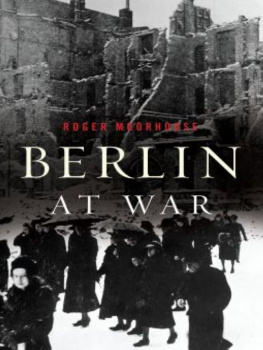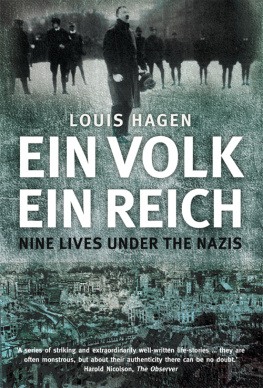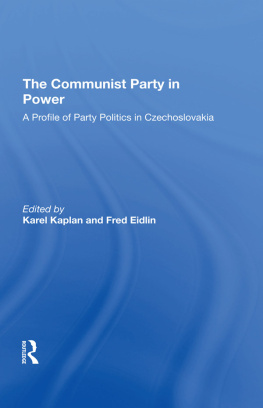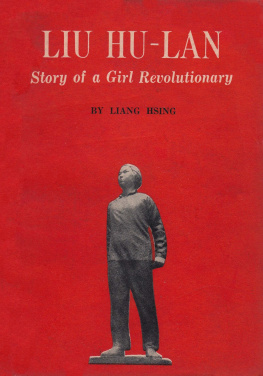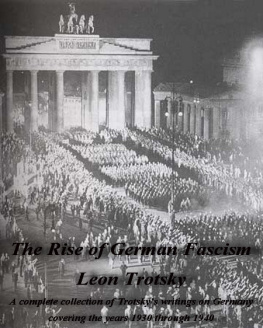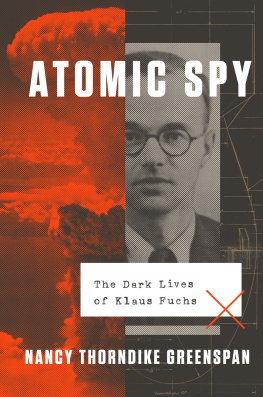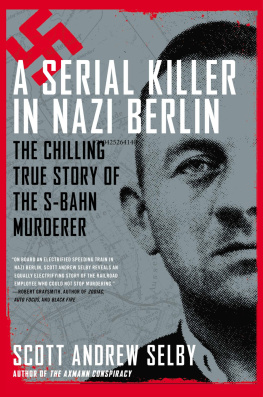Marion Kummerow
FROM THE ASHES
Berlin, May 1945
The Ilyushin aircraft hummed through the air and it didnt take long for Werner Bhm to nod off. At long last he was on his way back to Berlin. Memories streamed into his mind, happy ones and not so happy ones.
Look at these ruins. The voice of his superior, Norbert Gentner, startled him.
Werner opened his eyes and leaned forward to look out of the tiny window. He drew in a shocked breath. Even though hed anticipated rubble and destruction, he hadnt been prepared for the utter devastation he saw. Miles and miles of nothing but smoldering ruins lay beneath the aircraft. He felt a tug at his heartstrings. Berlin had once a lifetime ago been his home.
Our Red Army certainly hasnt left many reminders of Hitlers fascist regime, he said, wise enough not to mention that the British and American bombers had been responsible for most of the destruction and the Great Red Army had only razed to the ground what was already crumbling.
Gentner, a man in his forties with a balding head and a goatee beard, nodded. Yes, our army has done a stellar job and we cant praise Stalin enough for his foresight to be the first ones to reach the defeated capital. Youll soon witness how this will help us to implement a demilitarized democracy after the Russian model. Its not often that you get the opportunity to build an entire country from a blank slate.
I feel very honored to be part of your group, Comrade Norbert, Werner said.
Norbert Gentner was the head of a delegation of German emigres in Moscow assembled by Stalin to rebuild Berlin according to his wishes. A member of the communist KDP party, Gentner had fled the Nazis in 1938 and arrived in Moscow three years later after stations in Paris and Prague. Since then hed been trained to take over the government of a defeated Germany. It was an exceptional honor to be elected as part of Gentners shadow cabinet that would take Germanys future in its hand. It was Werners chance to make history.
At the age of twenty-eight German-born Werner had lived longer in Russia than in his home country. For the past fifteen years hed worked relentlessly to be in the position he now had, and he vowed not to ruin this fantastic opportunity. He had so many suggestions for improvement of the existing socialism in Russia and itched to discuss some of his theories with Norbert.
It wont be an easy task, though. Norbert observed the younger man through his spectacles and Werner felt suddenly inadequate. Despite his education at the Moscow University he could never measure up to his icon, who was a well-travelled and distinguished man whom Werner had looked up to since his childhood. The older mans wisdom and accumulated experience were legendary.
We have to undo twelve years of Nazi brainwashing and re-educate the people in the anti-fascist sense. Norbert said.
Yes, Comrade, Im aware of this and I feel well prepared for such a monumental task. Werner studied Norberts face. He looked serious and exhausted.
Im sure, you have studied the theories. But what we face here, is the reality, Norbert said. Werner nodded, not daring to interrupt his boss. Comrade Stalin wishes us to build a demilitarized democratic state. But what might seem easy, wont be. It is a Herculean task for us to accomplish and we need everyone to pull at the rope. The German people have been thoroughly corrupted by fascism and we must be on guard at all times. We cannot indulge them, nor can we become soft. Instead we need to look out for signs of reversion into fascism and eradicate this evil without mercy.
Werner had heard these exact sentences a thousand times during his formation years in the Komsomol and at Moscow University. His admiration for Gentner was evaporating fast. His icon did not live up to his reputation. Throughout the entire journey from Moscow to Berlin the man had shown himself to be a zealous party official who rehashed every officially approved directive, never once changing as much as a single comma.
I agree, Comrade, fascism is the evil we must obliterate, but surely that will work better if we gain the trust and friendship of the Germans first, Werner said.
Gentner pushed up his spectacles on his nose. That is a nice little theory. In reality, the German responds best to orders. He leaned back, glancing out of the window and then turned his attention toward Werner again. I dont fault you for your romantic ideas, because you were too young to understand what happened before Hitlers coming to power. Fascism didnt start with the Machtbernahme, it had been planted long before. Under my guidance, Im sure you will become a very valuable party official.
Werner felt the sting of Norberts arrogance and he didnt think he needed guidance if that consisted exclusively in official party wisdom or Stalin quotes. He had probably studied Leninism and Marxism far more intensively than the older man.
All these years in school and university, discussing the benefits of communism, had equipped him with the intellectual weapons to beat anyone in a political argument. Which he suspected was the main reason why hed been chosen to become Gentners right hand: because Werner wielded the power of the word like nobody else did.
I am more than eager to learn from your vast real-life experiences, he said, enthusiastically. It wouldnt do his career any good to give the slightest impression of disloyalty. Norbert might have lost all connection with the reality he so much liked to mention, or the gift of independent thinking, but he was in Stalins graces and the designated chairman of the German KDP, tasked with manning the new self-governing structures in Berlin. If Werner aspired to a political career, it was at Norberts side.
The aircraft jumped and moments later the pilot announced the imminent landing at the airport. Werner fastened the seatbelt and leaned back in his seat, swallowing down the rising malaise from the jumpy ride. Thankfully, the pilot brought the aircraft down safely without too much of a bump when the wheels hit the rough landing strip.
Welcome to Berlin, the pilot announced.
Werner waited until Norbert gathered his briefcase and then helped him into his greatcoat, before he put on his own. It didnt take long for the ten man delegation to disembark and step onto German soil.
He had last seen the capital as a ten-year-old boy in 1927, when his communist parents had emigrated to Russia, and his heart filled with nostalgia. He inhaled deeply, expecting the air to smell fresh and woody, the way he remembered it. Instead, he crunched his nose at the intense odor of smoldering heat.
A cough followed his first breath and he scanned the surroundings. Columns of black smoke stood against the horizon, thick and solid, the acrid scent lingering in the air. It was a distinct and disgusting smell, not only of burning wood, but also of incinerated flesh. The delegation hurried to cross the patchy airstrip and boarded the waiting cars. After a bumpy ride past more rubble than Werner had ever imagined existed the delegation reached their headquarters in the Prinzenallee in Berlin-Lichtenberg.
A smartly-dressed soldier greeted them and showed them the spacious modern building that featured little war damage. The apartments on the ground floor had been converted into offices and each of the ten men was assigned quarters in one of the higher up floors to live in.
Werner didnt even have the time to unpack his suitcase, when someone knocked at the door.
Yes, please, he answered.
The same aide whod shown him to this room stood in the door and said, General Sokolov is ready to receive you.
Im coming. Werner straightened his dark suit and followed the soldier into the hallway, where the rest of the delegation was already gathered. Together they boarded the cars again that took them to the former Wehrmacht engineer school in the suburb of Karlshorst that was now the Soviet Military Administration Headquarter (SMAD).



